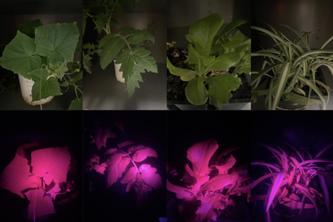
In a first of its kind study, researchers at the University of Minnesota have analyzed three years of data from iFish Alberta, a popular angler app. Their results, published this week in the journal Fisheries, show how fishing is spread across the province and various lakes, and how anglers move between lakes.
“A lot of people have speculated that anglers can supply a lot of useful information through these apps,” says Paul Venturelli, assistant professor in the U’s department of Fisheries, Wildlife, and Conservation Biology. “Our analysis confirms that this is the case.”
Apps allow anglers to supply information quickly and cheaply, in real time, and over large areas. Traditional methods (surveys and interviews with anglers) are comparatively slow and expensive, and therefore limit the data available to researchers and managers.
“Surveys and interviews are limiting because we can’t be everywhere at once or even in one place all of the time,” Venturelli says. “Apps change that. This is a potential game changer in Alberta.”
App data will allow managers to quickly assess fishing quality in many lakes and rivers. That information is used to plan stocking and set regulations. App data also provide unique insight into rare species, angler motivations and preferences, and the spread of invasive species.
Anglers benefit from their data because improved management means a better fishing experience. Apps also contain a number of useful features, including a private catch log that anglers can use to identify trends in their catch.
Anglers and researchers in other areas are catching on to the benefits of angler apps. Anglers are using apps to supply data in Florida, the Gulf of Mexico, Denmark, the Netherland, and Sweden.
Venturelli and his team have initiated the iFish Forever project in Minnesota and Ontario in partnership with The AppDoor (the company behind iFish), the Minnesota Department of Natural Resources, the Ontario Ministry of Natural Resources and the Great Lakes Fisheries Commission.
The goal of the project is to understand which anglers are using the app, and to compare results based on app data to results based on survey/interview data. For more information about iFish Forever, visit http://www.ifishforever.com/
“We’re happy with progress so far,” Venturelli says. “Some anglers worry that iFish Forever will reveal secret spots or hot bites, but I hope that this paper puts them at ease. We’re interested in the big picture that emerges regionally over a season and across the angler community. With help from this community, we can use this big picture to ensure quality fisheries well into the future.”
- Categories:
- Agriculture and Environment





